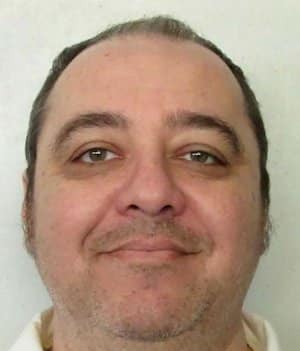WASHINGTON (OSV News) — The Supreme Court Jan. 24 rejected an appeal by death-row inmate Kenneth Smith, whose planned execution by the state of Alabama — the first known execution by nitrogen gas — was openly decried by more than 100 Alabama faith leaders just days earlier.
Smith, who sought a stay of execution from the court, faces the death penalty for his conviction in the 1988 murder-for-hire slaying of Elizabeth Sennett. The jury that convicted Smith voted for him to face life imprisonment, but a judge imposed the death penalty in 1996 — a now abolished practice called judicial override.
The state sought to execute Smith in November 2022 by lethal injection but botched the attempt after four hours of trying.
Smith’s lawyers had asked the high court to intervene, arguing the untested nature of execution by nitrogen hypoxia leaves the potential for the state to botch that procedure. They claimed this would violate the Constitution’s prohibition on cruel and unusual punishment under the Eighth Amendment.
The court rejected that argument, with no justices publicly dissenting.
As of Jan. 24, Smith had a separate claim pending in another federal court, the 11th U.S. Circuit Court of Appeals, to halt the execution.

Unless a court intervenes, Smith’s execution is scheduled to take place Jan. 25.
Smith would reportedly be the first person in the United States to be put to death with nitrogen gas. States that still use capital punishment are increasingly seeking alternate ways of carrying out executions as the drugs used in lethal injections become more rare.
Alabama Gov. Kay Ivey, a Republican, has backed carrying out Smith’s execution.
Priests, sisters voice opposition
A delegation of more than 100 Alabama faith leaders and community members — including some Catholic priests and religious sisters — delivered a letter to Ivey Jan. 22 urging her to call off the execution.
One of the signatories was the Rev. Cynthia Carter of All Saints Episcopal Church in Homewood, Alabama, who said in a statement, “As a state that proclaims its commitment to life, we must not proceed with this untested and experimental form of execution.”
“Nitrogen hypoxia, which has never been used as an execution method ever before, may pose untold risks to spiritual advisors, prison personnel, witnesses, and others in proximity to the execution,” Carter said. “It is certainly inconsistent with the values of human dignity and respect for life.”
In his 2020 encyclical “Fratelli Tutti,” Pope Francis cited St. John Paul II, whom he said “stated clearly and firmly (in the 1995 encyclical “Evangelium vitae“) that the death penalty is inadequate from a moral standpoint and no longer necessary from that of penal justice.”
“There can be no stepping back from this position,” Pope Francis wrote. “Today we state clearly that ‘the death penalty is inadmissible’ and the Church is firmly committed to calling for its abolition worldwide.”
The pontiff also revised in 2018 the Catechism of the Catholic Church’s section on the death penalty (No. 2267) to reflect that position.
A ‘reckless, inhumane’ method
Krisanne Vaillancourt Murphy, executive director of the Catholic Mobilizing Network, a group that opposes capital punishment, said in a Jan. 24 statement to OSV News, “Kenny is a human being, not an experiment.”
“It’s confounding the lengths to which Alabama is going to take his life,” Vaillancourt Murphy said. “The state’s plan to kill Kenny using nitrogen hypoxia, an untested execution method, is reckless, inhumane, and a violation of his inherent human dignity.”
Smith has been on death row for 35 years, Vaillancourt Murphy added, noting Smith would not even be on death row had not a judge overruled the jury’s recommendation of life in prison.
“He survived a botched execution, suffering through hours of poking and prodding before the state was ultimately unable to set an intravenous line for his lethal injection,” she said. “And now he is being made to serve as a test case for killing by nitrogen hypoxia. What in the world … have we lost our minds?”
Vaillancourt Murphy said that as a church “we mourn the life of Elizabeth Dorlene Sennett, and we pray for those who continue to grieve her death,” but emphasized, “Returning death for death only perpetuates cycles of harm and violence.”
She said, “We as a people of faith are called to show mercy, to believe in the power of redemption, and to provide opportunities for all people to experience healing and wholeness.”





